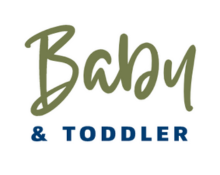
Maintaining a healthy and balanced diet while breastfeeding is essential to ensure that you and your baby receive the necessary nutrients for optimal health and well-being. Here are some dietary recommendations to consider:
Eat Nutrient-Dense Foods: Focus on consuming a variety of nutrient-dense foods to meet your increased nutritional needs. Include a mix of fruits, vegetables, whole grains, lean proteins, dairy or dairy alternatives, and healthy fats in your daily meals.
Stay Hydrated: Drink plenty of fluids to stay well-hydrated, as breastfeeding can increase your fluid requirements. Water is the best choice, but you can also include herbal teas, milk, and fresh fruit juices. Aim for at least 8-10 cups of fluids per day.
Consume Adequate Calories: Breastfeeding requires extra energy, so ensure you are consuming enough calories to support your milk production and maintain your energy levels. Avoid restrictive diets or excessive calorie-cutting during this period. Your healthcare provider can guide you on the appropriate calorie intake based on your individual needs.
Focus on Quality Protein: Include protein-rich foods such as lean meats, poultry, fish, eggs, legumes, nuts, and seeds in your diet. Protein is essential for tissue repair, growth, and milk production.
Emphasize Healthy Fats: Include sources of healthy fats like avocados, nuts, seeds, olive oil, and fatty such (such as salmon) in your meals. Healthy fats provide energy and support brain development in your baby.
Incorporate Iron-Rich Foods: Choose iron-rich foods such as lean meats, poultry, fish, leafy green vegetables, legumes, and fortified cereals. Iron is important for both you and your baby’s blood production and overall health.
Opt for Calcium-Rich Foods: Include dairy products, fortified plant-based milk alternatives, leafy green vegetables, tofu, and calcium-fortified foods to meet your calcium requirements. Calcium is essential for bone health, both for you and your baby.
Include Fiber-Rich Foods: Consume a variety of fruits, vegetables, whole grains, and legumes to maintain regular bowel movements and support digestive health.
Limit Caffeine and Alcohol: Excessive caffeine intake can affect your baby’s sleep patterns, so it’s advisable to limit your consumption. When it comes to alcohol, it’s best to avoid it while breastfeeding . If you do choose to consume alcohol, plan your breastfeeding sessions accordingly and ensure alcohol has cleared your system before nursing.
Consider Supplements: Discuss with your healthcare provdier whether you need any specific supplements while breastfeeding, such as a prenatal vitamin, vitamin D, or omega-3 fatty acids.
Remember that every individual’s nutritional needs can vary, so it’s important to consult with a healthcare professional or a registered dietitian for personalized dietary advice based on your unique circumstances and any specific dietary considerations or restrictions you may have.
